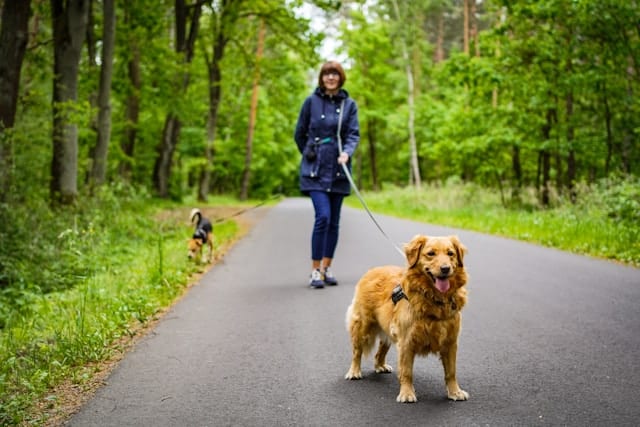Welcoming a new puppy into your home is a joyous occasion. However, ensuring the pup grows into a well-adjusted, sociable adult dog takes time and effort. Socialization is a critical component of your puppy’s development. It involves exposing them to various settings, experiences, and individuals, including children and elderly people. But, what is the best way to socialize a puppy with the young and the old? Let’s uncover the answers.
Understanding the Importance of Puppy Socialization
Before diving into how to socialize your puppy with elderly people and children, it’s crucial to understand why socialization is so crucial. Adequate socialization helps shape the behavior and temperament of your pet. A well-socialized puppy will grow into a confident and well-rounded adult dog.
Dans le meme genre : How to Choose the Right Type of Dietary Fiber for a Cat with Constipation?
Imagine you’re a pup. Everything is new and different, potentially even scary. Socialization is about familiarizing the pup with these new experiences, and making them feel safe and comfortable. This process will help your puppy better handle new situations, people, and other animals in the future.
It also significantly decreases the chance of your pup developing fear-based reactions, anxiety, and aggression. In essence, socialization sets the stage for your pup to enjoy a broad range of experiences, ensuring they are comfortable and well-adjusted.
A voir aussi : What Are the Best Pet-Safe Houseplants for a Home with Cats?
When is the Right Time for Puppy Socialization?
You may wonder, when is the ideal time to start socializing your puppy? The answer is as soon as possible. Puppies have a ‘critical socialization period’ between 3 and 12-14 weeks old, during which they are most receptive to learning about their environment.
During this time, puppies are most equipped to handle new experiences and will be more likely to react positively. It’s an ideal stage to introduce them to different people, environments, and situations.
However, remember to ensure your puppy has received at least its first set of vaccinations before exposing them to other dogs or areas frequented by dogs. Speak with your vet to understand the best timeline for your puppy’s socialization.
How to Socialize a Puppy with Elderly People
Introducing your puppy to elderly people requires a gentle and gradual approach. Remember, elderly individuals may not move or react in the same way as other adults, which can initially confuse your puppy.
Begin by finding a calm and quiet environment for the introduction. Have the elderly person sit comfortably and allow the puppy to approach them when they feel ready. Use treats to encourage positive associations with the elderly individual.
Repetition is key. Regular visits will help familiarize the puppy with the person’s smell, movements, and voice. Over time, this can significantly help the pup become more comfortable around older people.
Socializing a Puppy with Children
Children are often enthusiastic and full of energy, which can be overwhelming for a puppy. It’s therefore vital to monitor these interactions closely to ensure they are positive experiences for both the child and the puppy.
Teach the child how to appropriately pet and play with the puppy. Show them where the puppy likes to be touched and where they don’t, as well as what sort of play the puppy enjoys. Always supervise playtime to make sure the child isn’t being too rough or scary for the puppy.
Encourage the child to engage in training sessions with the puppy. This can be a simple ‘sit’ command or helping with leash training. This not only helps the puppy learn new skills but also helps establish a bond between the child and the puppy.
What if My Puppy Shows Signs of Fear or Aggression?
It’s important to remember that every puppy is unique, and some may require more time and patience to feel comfortable in new situations. If your puppy exhibits signs of fear or aggression during socialization attempts, it’s crucial to take a step back and reassess the situation.
Never force your puppy into a situation they are uncomfortable with. Instead, gradually expose them to the situation from a distance they are comfortable with, rewarding them for calm behavior. If the aggression or fear persists, consider seeking help from a professional dog trainer or pet behaviorist.
By understanding and considering your puppy’s unique needs and reactions, you’ll find the best path to a successful socialization process. And remember, patience and consistency are key.
Training Sessions to Facilitate Puppy Socialization
Once you’ve successfully introduced your puppy to elderly people and children, it’s time to step up the socialization process through training sessions. Training sessions are not just about teaching your puppy commands, but they are also about reinforcing positive behavior, building trust, and deepening bonds.
Incorporating elderly people and children into your puppy’s training sessions will help your puppy understand and recognize different age groups’ behaviors. This can be as simple as having them present during the training or involving them in teaching your puppy simple commands like ‘sit’ or ‘stay’.
While conducting training sessions, remember to use a lot of positive reinforcement. This could be in the form of treats, praises, or petting. Rewarding your puppy for behaving well around people, especially children and the elderly, will help reinforce these behaviors.
However, be sure to keep these sessions short and fun. Puppies have a short attention span, and too much training can be overwhelming. Also, remember that consistency is key. Regular training sessions with a variety of people will help your puppy become well-rounded and comfortable with all kinds of adults and children.
The Role of Dog Sports and Activities in Puppy Socialization
In addition to regular training sessions, engaging your puppy in dog sports and activities can significantly enhance their socialization skills. Dog sports like agility, obedience, and herding can help your puppy interact with other dogs and different environments, boosting their confidence.
Moreover, these activities can teach your puppy about discipline, patience, and teamwork. They can also help to drain your puppy’s energy, making them calmer and more receptive to socialization attempts with elderly people and children.
Remember to choose age-appropriate activities for your puppy. Some dog sports may be too demanding for young puppies but perfectly suitable for older dogs. Always consult with your vet or a dog trainer to determine the best activities for your puppy’s age and breed.
Conclusion
To conclude, socializing a puppy with elderly people and children is a vital part of dog training. It helps shape your puppy into a confident, well-adjusted adult dog that’s comfortable in different environments and with people of all age groups. Despite the challenges, the rewards of a successfully socialized puppy are immeasurable.
Remember, the process of puppy socialization requires patience, consistency, and understanding of your puppy’s needs. Regular introductions, training sessions, and engaging in dog sports will help your puppy become well-rounded.
In case you notice any signs of fear or aggression during socialization, don’t hesitate to seek help from a professional. Your puppy’s well-being and comfort should always be the priority. Always keep in mind that a well-socialized puppy will grow into a loving and friendly adult dog, making the efforts worthwhile.











